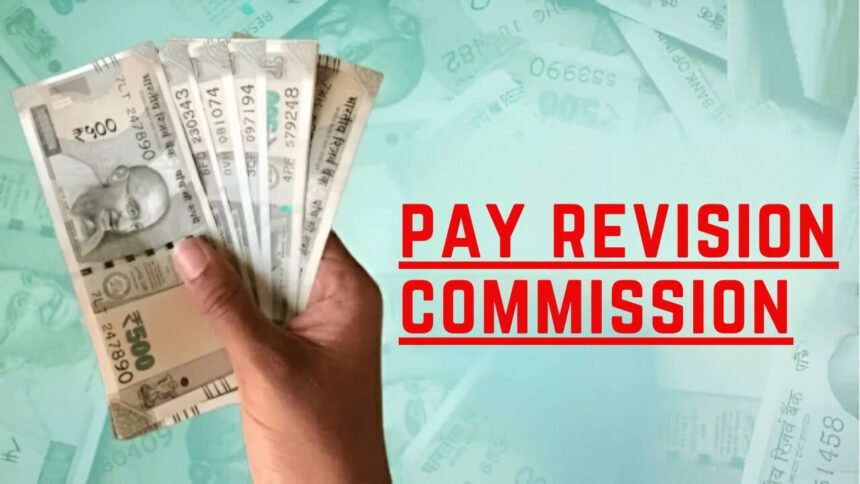In today’s fast-paced economy, where inflation, cost of living, and industry demands change rapidly, the Pay Revision Commission plays a vital role in ensuring that employee wages remain fair, competitive, and sustainable. While the concept is more widely recognized in government and public-sector contexts, it has growing relevance in the private sector as well. For American workers and employers alike, understanding how a pay revision commission functions can offer valuable insights into wage determination, labor rights, and organizational equity. This article explores what a pay revision commission is, why it matters, and how it impacts both employees and the economy at large.
Understanding the Pay Revision Commission
A pay revision commission is typically a formal body set up by a government, public-sector authority, or large organization to review and recommend adjustments to salaries, allowances, and other benefits. These commissions analyze economic data, industry pay scales, inflation rates, and the cost of living before submitting their recommendations.
In the United States, while we don’t often use the exact term “pay revision commission” in federal labor structures, similar functions are performed by compensation committees, wage boards, and independent review panels. These entities ensure that employees are compensated fairly in line with market trends, organizational budgets, and economic realities.
Historical Context and Evolution
The concept of structured pay revision dates back decades, with roots in public service reforms. Historically, wage adjustments were sporadic and often politically influenced. The creation of pay revision commissions offered a more standardized, transparent, and data-driven approach.
In the American context, parallels can be drawn with initiatives like the Federal Salary Council, which advises the President on pay adjustments for federal employees. Private-sector companies, especially in industries like healthcare, education, and technology, have also adopted formal review processes that mimic commission-style evaluations to maintain fair and competitive compensation packages.
Why a Pay Revision Commission Matters Today
The importance of a pay revision commission in the modern economy cannot be overstated. Inflation, technological disruption, and evolving skill requirements have transformed the labor market. Without structured review systems, employees risk wage stagnation, which can harm productivity, morale, and overall economic stability.
According to labor economist Dr. Alicia Grant, “A well-functioning pay revision mechanism ensures that compensation reflects both market realities and the value employees bring to their organizations. Without it, wage disparities and turnover rates tend to rise significantly.”
This relevance extends beyond government roles; private companies use similar frameworks to attract top talent, reduce attrition, and comply with fair labor standards.
The Process: How a Pay Revision Commission Works
While specifics vary depending on jurisdiction and industry, most pay revision commissions follow a systematic process:
- Data Collection: Gathering statistics on wage trends, inflation, and industry benchmarks.
- Stakeholder Consultations: Meeting with employee unions, management, and independent experts to understand concerns.
- Economic Analysis: Reviewing macroeconomic indicators like GDP growth, consumer price indices, and fiscal policies.
- Recommendation Drafting: Formulating proposals for salary increases, revised allowances, and benefits.
- Implementation: Submitting recommendations to the relevant authority for approval and rollout.
In some U.S. states, wage boards function similarly, especially in industries with a high proportion of low-wage workers, ensuring minimum compensation standards evolve with the economy.
Impact on Employees
For employees, the outcomes of a pay revision commission directly influence financial well-being and career satisfaction. Revised pay structures often lead to:
- Increased purchasing power
- Improved job satisfaction
- Enhanced loyalty toward the organization
- Greater economic security
In government roles, these revisions can also affect pension calculations, healthcare contributions, and other long-term benefits. For private-sector workers, it can mean better alignment with industry standards, which is crucial for retaining skilled talent.
Impact on Employers and the Economy
While wage increases can raise operational costs for employers, the long-term benefits often outweigh the expenses. Fair compensation improves employee retention, reduces recruitment costs, and boosts productivity.
From a macroeconomic standpoint, periodic pay revisions stimulate consumer spending, which drives business growth. In turn, this supports job creation and tax revenue. The ripple effect of a pay revision commission’s recommendations can therefore extend far beyond the workplace.
Challenges Faced by Pay Revision Commissions
Despite their importance, pay revision commissions are not without challenges:
- Budget Constraints: Employers and governments must balance fair pay with fiscal realities.
- Inflation Lag: Adjustments often come after inflation has already impacted employees.
- Negotiation Deadlocks: Disagreements between employee representatives and management can delay implementation.
- Sectoral Disparities: Recommendations may not apply evenly across different industries or regions.
These challenges highlight the need for flexibility and regular reviews rather than relying solely on long intervals between revisions.
Pay Revision Commission in the American Context
In the U.S., wage review systems are more decentralized compared to some other countries. Federal, state, and corporate structures all play a role. Examples include:
- Federal Salary Council for public employees
- State-level commissions for sectors like education and law enforcement
- Corporate compensation committees for internal pay reviews
While the term “pay revision commission” is more common in countries like India or the UK, the principles remain universal. American organizations are increasingly adopting commission-style reviews to ensure fairness, compliance, and competitiveness.
The Future of Pay Revision Commissions
Looking ahead, the role of a pay revision commission will likely expand to address emerging trends:
- Remote Work Pay Adjustments: Considering location-based pay structures.
- AI and Automation Impacts: Adjusting wages for roles evolving due to technology.
- Equity and Inclusion: Closing gender and racial pay gaps.
- Sustainability and Benefits Integration: Linking pay to well-being, training, and work-life balance.
As labor markets become more dynamic, the demand for transparent, data-driven pay reviews will continue to grow.
Conclusion
The pay revision commission is more than just an administrative body—it is a safeguard for economic fairness, workforce stability, and organizational integrity. In an era where economic conditions shift rapidly, having a structured, evidence-based mechanism to review and adjust pay ensures that both employees and employers thrive. For Americans navigating a competitive job market, understanding the role and function of such commissions is essential to advocating for fair wages and equitable treatment.
By combining economic data, stakeholder input, and a commitment to fairness, a pay revision commission can help shape a more just and prosperous workforce for the future.
you may also like
Unlock the Hidden Power of Car Finance 4U: Drive Your Dreams Today






